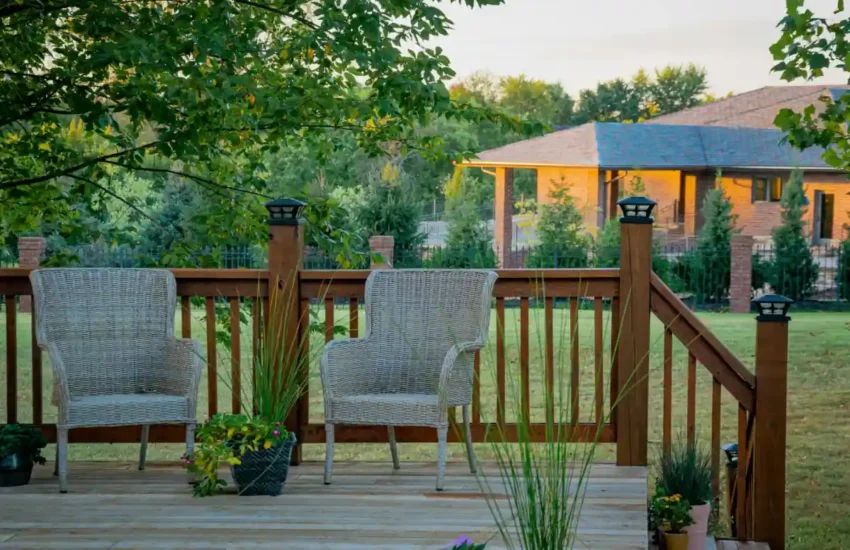7 Reasons to Go Green and Switch to Solar Energy
Every quarter, 1 in 600 U.S. homes decides to go green by installing solar panels. That’s despite the recent increases in solar panel installation and material costs.
After all, even with those price hikes, solar is still a worthy investment for the planet’s sake. It also benefits everyone and everything that calls Earth home. And besides, the U.S. federal solar tax credit is now back to 30%, staying that way until 2032.
But what exactly makes solar an eco-friendly choice? Why should you even consider going green with this renewable energy source?
In this guide, we’ve listed all the top reasons to switch to solar. So keep reading, as what you learn here can help enlighten you.

1. Minimize Extraction of Fossil Fuels
Extracting fossil fuels, which include drilling, fracking, or mining, destroys the environment. That’s because such processes degrade and pollute the air, land, and water.
For the same reasons, they uproot wildlife habitats, stripping animals of their homes. That’s also why environmentalists are pushing everyone to switch to cleaner energy sources.
Solar is the most popular, as its technology is less complex than other clean energy options. As a result, solar energy systems are more accessible to consumers, particularly homeowners.
You only need interconnected solar panels and an inverter to generate solar energy. You can install the system on your roof, but you can also mount it on the ground or on a wall. And once wired to your service panel, it starts producing electricity to power your home.
2. Prevent Complete Depletion of Fossil Fuels
Fossil fuels are non-renewable since they take hundreds of millions of years to form. Thus, the longer people rely on them, the closer they are to depletion. And the nearer the world gets to that point, the more expensive these resources can get.
By contrast, the sun has about 7 billion to 8 billion years left before it sizzles away and dies. That makes solar energy, harnessed from the sun, self-replenishing and renewable. As long as the sun rises and shines, it can provide an inexhaustible energy source.
So, switching to solar energy can help prevent the risks of fossil fuels ceasing to exist.
3. Shrink Your Carbon Footprint
A carbon footprint is the sum of anthropogenic greenhouse gases everyone generates. Anthropogenic, in this case, means human-generated. These include GHGs like carbon dioxide and methane that trap heat in the atmosphere.
Anthropogenic GHGs are the most significant contributors to global warming. The majority comes from burning fossil fuels, particularly for energy. In 2020 alone, fossil fuel combustion accounted for over 70% of U.S. GHG emissions.
Therefore, the more fossil-fuel-based energy you use, the larger your carbon footprint. Unfortunately, that also means you contribute more global warming-causing GHGs.
The good news is that solar energy generates far fewer GHGs than fossil fuels. Thus, going green with this renewable energy can also help cut your carbon footprint.
4. Help Abate Air Pollution
Solar is among the cleanest, greenest types of energy resources. After all, it doesn’t involve combustion; nothing gets burned during the process. Instead, its generation relies on technology that harnesses and converts sunlight into energy.
On the other hand, fossil fuel combustion releases GHGs and pollutants into the air. These include ozone and particulate matter (PM), to name a few. They are the primary culprits behind the highly polluted air that 137 million people in the U.S. breathe.
Thus, switching to solar energy gives you the chance to help make the planet less polluted.
5. Aid in Reducing Acid Rain
The burning of fossil fuels also emits nitrogen oxides and sulfur dioxides into the air. They’re both types of toxic gases that, once mixed with the air, can move hundreds of miles with the help of the wind. Even worse, they can become part of the dangerous type of precipitation known as acid rain.
Acid rain contaminates water bodies and causes them to become very acidic. Acidic water, in turn, can interfere with the growth and reproduction of marine life. In some cases, it can be toxic enough to kill aquatic creatures.
Acid rain can also contribute to or cause plant and animal death. Plus, it can damage buildings and other structures.
Fortunately, generating solar power doesn’t emit such toxic gases. Therefore, it can help reduce the frequency of acid rain events.
So if you want to do your part in mitigating acid rain, hire reliable solar panel installers ASAP.
6. Cut Your Energy Bills
When you invest in a solar power system, you’ll generate your very own energy. Thus, every watt the system produces is a watt off your grid-sourced consumption. That then results in lower electricity bills.
You may even get credits if you participate in a net metering program. In this case, any excess energy your solar power system generates gets sent to the grid.
Your electricity provider, in turn, credits you for all that extra energy you send back to the grid. So if your solar energy system generates more power than you use in a month, you may see a negative charge on your bill. In this scenario, you won’t have anything to pay for that month.
7. Keep the Power on During Outages
With all the mass outages occurring in the U.S., it’s no wonder the generator industry is booming. Interestingly, climate change is also behind many of these power outages. Ironically, many generators rely on fossil fuels like oil and natural gas.
Luckily, there are now solar-powered generators and solar batteries. These are your eco-friendlier options to keep your home powered during outages. In addition, you can connect them to an existing solar panel system.
Time to Go Green With Solar
And there you have it, all the top reasons to switch to solar to help you go green. Now you know it’s because solar is one of the cleanest energy sources. As a bonus, it can help cut your energy bills and may even keep your home powered during outages.
So, consider investing in a solar energy system as early as today.
Did you like this article and would like to read other informative guides? Please feel free to check out our most recent news and blog posts then!


